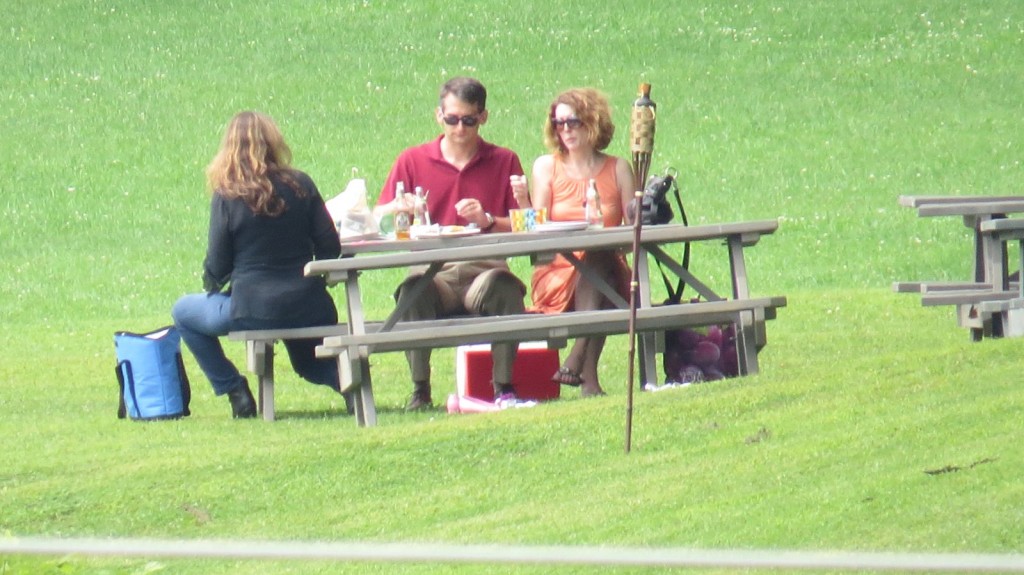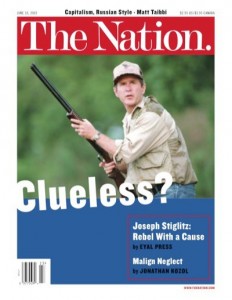“Just be polite to policemen. They might even let you off.” Continue reading →
George Noory, who recently argued in favor of allowing the two American Ebola victims to die in Africa, counseled his listeners this morning to be polite to policemen because they might let you off when you have broken the law. There is little doubt that this technique might work, but there is another side to the coin.
The guys who protected and served with me in the MP Company in Sandia Base, NM, in the early seventies were a peculiar bunch. For the most part we were grateful that we had been assigned to an area with no rice bogs covered by invisible sniper fire, but most of us had no interest in police work, and we hated just about everything about it.
There was almost no crime on the base. The time spent on patrol almost always involved nothing more than driving around with an occasional stint as escort for the proprietors of the BX (Base Exchange – like a Target or Walmart) or the commissary (grocery store) to bring the day’s receipts to the bank. Occasionally the bosses would decide that we needed to do something about speeding in a specific area, and they would order us to set up radar. Otherwise most of us generally left the people alone.
There were a few exceptions. One of them was a guy in our platoon who asked us to call him “Duke” because he was a big John Wayne fan. I remember that my first day on patrol was with him. After he drove out to feed an apple to some horses that for some reason lived on the base, he told me that he was going to show me how to give tickets. He disclosed that he had a few favorite spots in which he would hide the cruiser. From these locations he could see whether people came to a complete stop at a stop sign, but they could not see the police car or truck very well.
The first time that he saw one of these miscreants he flipped on the siren and gave chase. When the offending vehicle had come to a stop, he deposited ours behind it and, before he opened the door, he said to me, “Watch and learn.”
He held his head tilted back a little as he walked and pulled his cap down over his forehead. His gait was a reasonable impression of John Wayne’s amble. “Good morning,” he opened. “Do you know what a stop sign is?” When he returned his ticket book was one ticket lighter.
We returned to our hiding place, and before too long another criminal appeared. After we chased this one down, the Duke told me that I should give him a ticket. I refused, which really annoyed him, but there was not too much that he could do about it. We were the same rank.
The Duke was not a hard-liner. Whether he gave the subject a ticket or not depended not so much on the egregiousness of the crime as the attitude exhibited by the driver. If he treated the Duke with the respect he deserved, he usually got off. If she treated the Duke with respect, she always got off.
One of the Duke’s favorite spots was outside of the Officer’s Club. At the club’s closing a fairly large number of cars would exit, and there was a stop sign there that the Duke liked to monitor on the midnight shift. One night a very drunk senior navy officer blew right through the stop sign and was pulled over by the Duke. Occupying the passenger seat in the subject vehicle was a young lady with a reputation for making her living by providing extracurricular services to military personnel. The odor of alcohol was overpowering.
Needless to say the officer was very polite to the Duke, and he was rewarded with a warning and a simple “Please be more careful, sir.” The Duke did not provide him with a police escort, but neither did he confiscate his keys.
Most of the drivers whom the Duke stopped got a ticket because they had the temerity to question the wisdom of his actions in insisting on enforcing the letter of the law in the middle of the night in the middle of nowhere. So, in fact, in the Duke’s system there was a negative correlation between the severity of the offense and the likelihood of getting a ticket.
I don’t know if there are a lot of cops with the Duke’s attitude, but I do know that he was one of the very few in our company who intended to become policemen in civilian life.




